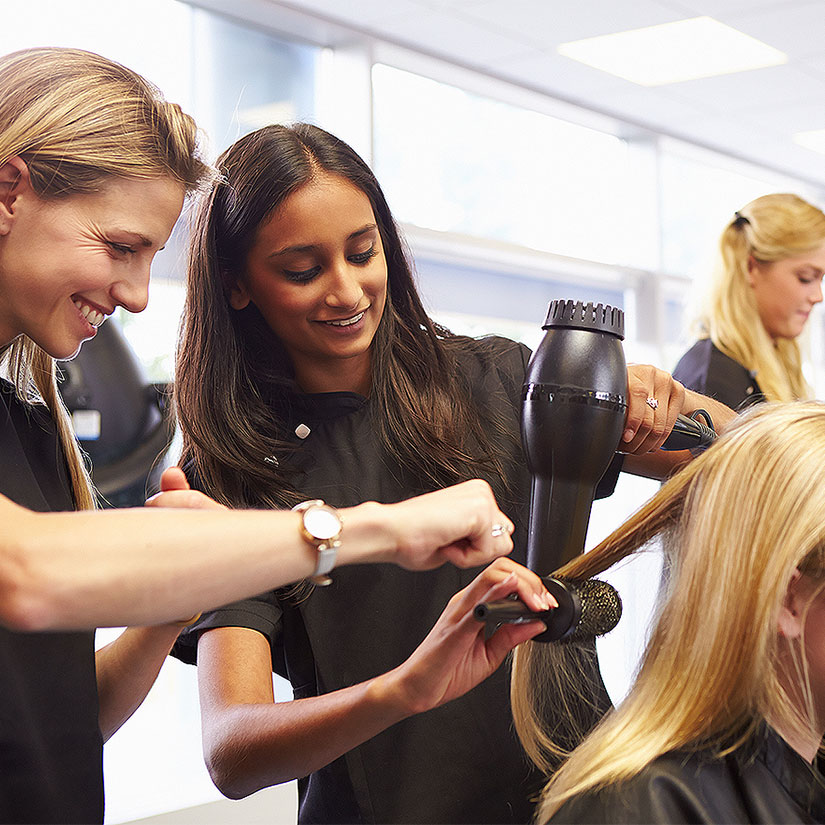Esthetics is an exciting industry and it continues to grow in popularity as more people prioritize caring for their bodies and skin with the help of trained professionals. Estheticians provide a number of services related to skincare and maintaining vitality, health, and a glowing complexion.
An esthetician license means that the service provider has been properly trained and educated in the latest methods and techniques meeting industry standards. If you’re considering pursuing an education in esthetics, read on to help decide if this is the right career for you.
How is an Esthetician Different from a Cosmetologist?
There are several points of difference between estheticians and cosmetologists. Where estheticians focus on skincare and cosmetic skin treatments, cosmetologists focus on hair color, hair cutting, and hair styling.
The training required to become an esthetician is another major point of difference. To become an esthetician, you must complete anywhere from 300 to 1,500 hours of training depending on your choice of school and the state in which you complete your program. At Tricoci University of Beauty Culture, we require 1,500 hours to ensure you have the best education possible and are well-prepared for professional success.
After you have completed your training at an accredited program like ours, you will have to pass a written and practical exam to obtain your license.
From there, you get to choose the work environment that best suits you. Estheticians can work in salons, provide services at day spas, med spas, or skin spas that offer exclusively esthetics services.
What Services Do Estheticians Provide?
Licensed estheticians can provide a wide range of services, all related to skincare and cosmetic skin treatments. However, because estheticians are not medical doctors, there are a few things they cannot do. These limitations include:
- Suggest medical treatment for skin issues
- Prescribe medication
- Provide diagnosis of skin conditions
That being said, the skin health and vitality benefits of esthetic (sometimes called aesthetics) services should not be underestimated. Here are some of the most common services estheticians provide.
Facials
There are many different types of facials, but most consist of similar basic steps, with the differences coming in application, goal of applied products, and more. Most facials include a deep cleansing, exfoliating treatment, facial steaming, a uniquely formulated mask, and the application of serums and/or moisturizers.
Microdermabrasion
This treatment incorporates super fine exfoliants or a diamond-tipped wand to remove dead skin cells and leave customers with smoother skin, smaller pores, improved hyperpigmentation, and even fewer fine lines.
Superficial Chemical Peels
These are not the chemical peels you would receive in a dermatologist’s office. Instead, these are often less intensive while still providing excellent results. Peels are an extremely popular service that estheticians can provide, with varying benefits depending on the specific peel.
Waxing and Hair Removal
Another extremely common specialty for estheticians is waxing and hair removal services. Some estheticians will specialize in these services to provide the most effective results with minimal discomfort to their clients. This can include eyebrow waxes, upper lip waxes, leg waxes, bikini waxes, armpit waxes, and more.
Licensed estheticians may also offer other hair removal services like threading, tweezing, and even laser hair removal.
Acne Treatment
Some esthetic services are focused on lessening acne and scarring. These often incorporate exfoliation and over the counter medications, creams, and more. Acne treatments offered by estheticians are best suited for clients suffering from mild acne.
Body Wraps, Scrubs, and More
As a licensed esthetician, you will be able to do much more than provide facial treatments and skincare limited to the face and neck. You will receive the education and training necessary to care for the full body, which enables you to offer services like full-body exfoliation, extractions, and wraps with targeted treatment to tackle your client’s full spectrum of cosmetic skin desires.
Makeup Artistry
Additionally, some estheticians choose to offer makeup application as a service as well, expanding their expertise beyond skincare and into the exciting artform and creativity of makeup application.
Where do Estheticians Work?
As mentioned above, licensed estheticians have a number of choices when it comes to their preferred workplace. Choosing the environment that best suits you and allows you to focus on your favorite specialties within the esthetics industry may take some trial and error.
Salons can offer the opportunity for future cross-collaboration and additional learning in an environment where you are surrounded by like-minded professionals who chose a different beauty industry path than you. The variety can be exciting, but you may find it more difficult to keep consistent clients in a salon environment, depending on the emphasis the salon puts on the esthetics services available.
Day spas, med spas, and skin spas are all excellent options as well. With spa treatments, esthetics are naturally highlighted and promoted, which can help with consistent clientele. If a spa environment is more your style, make sure to choose a spa that brings in the kind of clients you want to work with. Matching your personality with your workplace is an important part of finding the right fit as an esthetician.
How to Become an Esthetician with Tricoci University
There are many fulfilling paths to take as a licensed esthetician, but they all start with your education. At Tricoci University of Beauty Culture, we have developed a unique esthetics curriculum that combines book-based learning with a digital learning environment and, most importantly, hands-on experience that goes above and beyond. You’ll learn not only the latest and most innovative techniques and industry methods to be an amazing esthetician, but also learn all the business skills you need to succeed in the industry as a beauty professional. Ready to start your esthetician education? Let’s talk.

